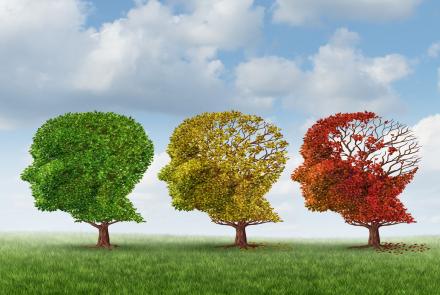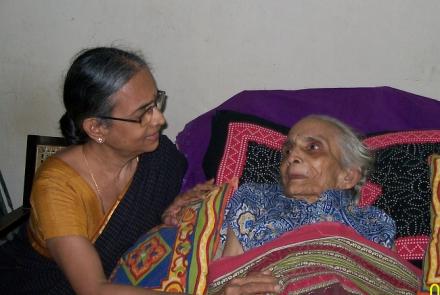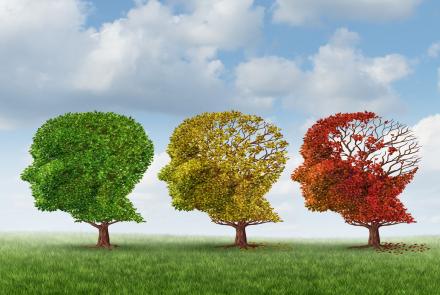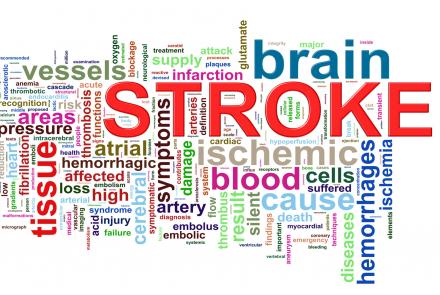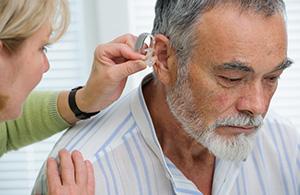
Dr S.P. Goswami, Professor of Speech Pathology at Mysore counsels that with the right kind of support, the load of the communication disorder can be shared equally by the aged individual as well as the family, the key to it being to meet them halfway.
Aging is a phenomenon which starts from birth and brings about changes in the individual across the life span. However, beyond the yardstick of 60 years, anatomical and physiological changes become highly evident in the human body, thereby leading to an alteration in the body’s ability to function. The process of typical aging leads to an overall slowing of all systems and a general decrease in agility of movement and function in the body.
Communication skills undergo subtle changes with typical aging, due to physiological changes in the neurological, auditory and vocal system. There may be changes in the voice (presence of voice tremors), slowing of speaking rate, and they may also show difficulty in comprehending complex or long utterances. These, however, cannot be defined as disorders of aging as they are a consequence of a natural phenomenon.
In addition to the physiological changes occurring due to the normal process of aging, some individuals are challenged with other disorders which hamper or interfere with their communicative skills. One of the most common disorders seen in the elderly is sensory loss i.e. hearing and vision loss. Hearing loss in the elderly impedes the ease of communication, as it often leads to difficulty in comprehending in the presence of noise, auditory perceptual errors and often causes misunderstanding between communication partners. Hearing loss is the third most prevalent chronic condition in older adults. Reduced or restricted vision may affect reading abilities in aged individuals. Sensory loss however, can be compensated for by use of hearing aids, spectacles, etc.
Risk of Stroke
Aphasia due to stroke is another commonly occurring condition seen in elderly individuals. As a result of systemic diseases, like hypertension and diabetes, the risk of stroke is higher in aged individuals. The communication deficits experienced by individuals will vary depending on the site and extent of lesion, but however, communication gets impacted to a great level. Due to the general weakness in these individuals, they may find it much more difficult to recover from a stroke, especially in individuals who acquire hemiplegia (paralysis of one side of the body) as a result of stroke.
A study by Davidson et. al (2003) observed aged individuals diagnosed with aphasia in communicative situations in daily life. They found that though these individuals often engaged in similar activities as those who did not have aphasia; like making telephone calls, reading, writing, meeting for social gatherings, etc, a difference was seen in the frequency with which these activities were done. Such minor differences reflect a restriction of social networks, thereby leading to a lack of connectedness experienced by the elderly individual. Another condition that may occur after a stroke which impacts communication is dysarthria. Dysarthria is a motor speech disorder which is caused by weakness in speech muscles after neurological insult. This leads to reduction in the clarity of speech, unintelligible speech, slow rate of speech and other speech errors.
Impact of Dementia
Dementia is a broad term used to categorize cognitive disorders characterized by impairment in cognitive functions of attention, memory, perception, executive functions, etc. These include Alzheimer’s disease, Pick’s disease, etc. Dementia is a debilitating condition which severely impacts the overall functioning of an individual, affecting cognitive, motor and communicative skills. The degenerative nature of this condition causes them to exhibit a varied severity of symptoms as the disease progresses. Initial symptoms consist of mild forgetfulness, word finding difficulties, difficulty in abstract reasoning, problem solving, etc. In the late stages, the cognitive-linguistic deficits are highly evident leading to loss of recognition of family members, marked reduction in language comprehension and expression, delusions and other peculiar behaviours. This condition largely causes a change in the communicative skills as well as the personality of the individual thereby leading to immense restriction of their societal and personal roles.
Communication Disorder Cripples
In the elderly population, whatever is the communication disorder, the impact it has on their lives and those of their caregivers is colossal. They often experience many hurdles right from access to services, to caregiver and family support. Having entered into the last few decades of their life, the elderly population often comprises of individuals who are retired and restricted to the house, moving out just for the purpose of family interaction or other simple household chores. Although the number of activities performed by these individuals may be restricted, the importance of communication in their day-to-day life must be highlighted. They often pass their time in the day communicating with caregivers, relatives, neighbours or grandchildren. But, when a communication disorder is imposed on them, the ability to cope with such a heavy burden impacts these individuals greatly. In addition to the physiological weakness experienced by them, the psychosocial consequences of such a disorder are much more incapacitating. Hence, these individuals have a greater possibility of falling prey to depression, isolation and other psychological disorders.
One of the unfortunate truths of dealing with aged population is that the deficits increase as time passes; and hence the caregivers and family members must be counselled to adopt simple strategies like improving everyday communication, keeping the communication clear and precise, encouraging the aged individual to use different modes of communication to convey their message, etc. With the right kind of support, the load of the communication disorder can be shared equally by the aged individual as well as the family, the key to it being; to meet them halfway.
Related: A son describes the communication challenges in looking after his mother

Dr S.P. Goswami, Ph.D ( Sp. & Hg.) is Professor of Speech Pathology & Head Department of Speech Language Pathology & Academic Coordinator at All India Institute of Speech and Hearing, Manasagangothri, Mysore.





